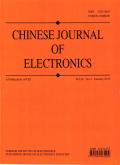求解高维电磁优化问题的gpu加速差分分组MEDO算法(DG-GMEDO
IF 3
4区 计算机科学
Q3 ENGINEERING, ELECTRICAL & ELECTRONIC
引用次数: 0
摘要
高维电磁优化问题,如阵列天线的设计,由于其复杂性和高维性,提出了巨大的挑战。麦克斯韦方程组导出优化算法(MEDO)是一种新型的优化方法,在电磁学中具有较强的性能,但随着问题维数的增加,效率会下降。为了解决这些挑战,本文提出了图形处理单元(GPU)加速的差分分组MEDO算法(DG-GMEDO),该算法在MEDO算法的基础上,通过集成增强的差分分组策略和基于GPU的并行加速。这种方法允许在利用高计算速度的同时更有效地管理可变交互。通过与粒子群优化、遗传算法等传统算法以及MAES2-EDG、GTDE、RCI-PSO、CCFR2-IRRG等先进算法的对比评估,突出了其在准确性和效率方面的竞争力。此外,DG-GMEDO在高维环境下表现出显著的运行时加速效果,并通过其在阵列天线辐射方向图优化中的应用得到了验证。本文章由计算机程序翻译,如有差异,请以英文原文为准。
GPU-Accelerated MEDO Algorithm with Differential Grouping (DG-GMEDO) for High-Dimensional Electromagnetic Optimization Problems
High-dimensional electromagnetic optimization problems, such as array antenna design, pose significant challenges due to their complexity and high dimensionality. The Maxwell's equations derived optimization (MEDO) algorithm, a novel optimization method with strong performance in electromagnetics, experiences a decline in efficiency as the problem dimensionality increases. To address these challenges, graphics processing unit (GPU)-accelerated MEDO algorithm with differential grouping (DG-GMEDO) is proposed in this paper, which builds on the MEDO algorithm through the integration of an enhanced differential grouping strategy and GPU-based parallel acceleration. This approach allows for more effective management of variable interactions while leveraging high computational speeds. Comparative evaluations with traditional algorithms like particle swarm optimization and genetic algorithm, as well as state-of-the-art methods such as MAES2-EDG, GTDE, RCI-PSO, and CCFR2-IRRG, highlight its competitive performance in terms of both accuracy and efficiency. Furthermore, DG-GMEDO demonstrates significant runtime acceleration and achieves promising results in high-dimensional settings, as validated through its application in array antenna radiation patterns optimization.
求助全文
通过发布文献求助,成功后即可免费获取论文全文。
去求助
来源期刊

Chinese Journal of Electronics
工程技术-工程:电子与电气
CiteScore
3.70
自引率
16.70%
发文量
342
审稿时长
12.0 months
期刊介绍:
CJE focuses on the emerging fields of electronics, publishing innovative and transformative research papers. Most of the papers published in CJE are from universities and research institutes, presenting their innovative research results. Both theoretical and practical contributions are encouraged, and original research papers reporting novel solutions to the hot topics in electronics are strongly recommended.
 求助内容:
求助内容: 应助结果提醒方式:
应助结果提醒方式:


